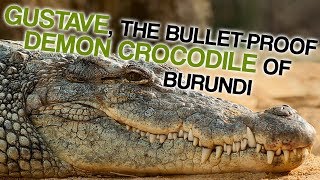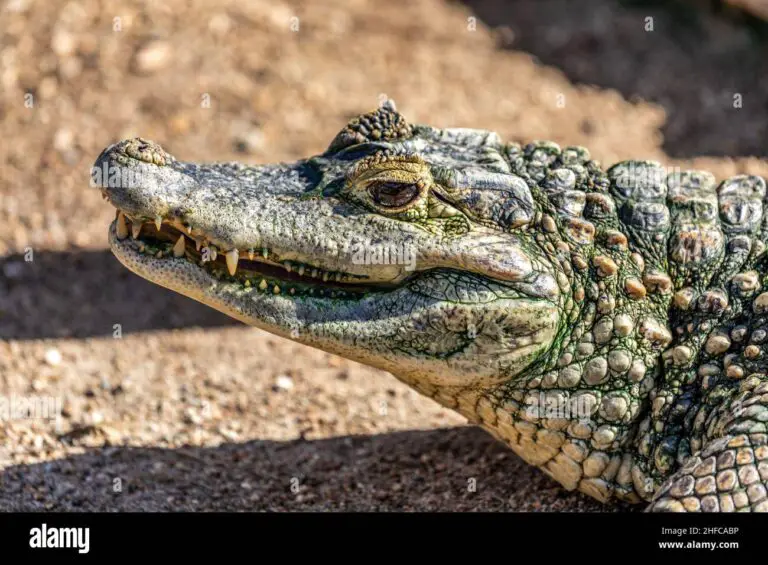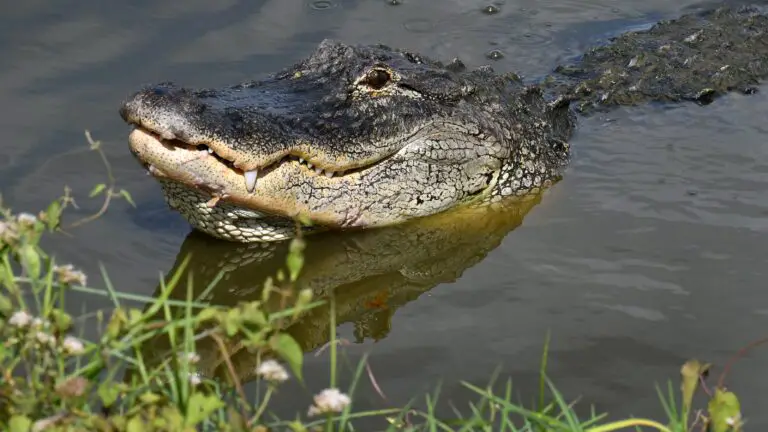Are There Crocodiles in Oklahoma
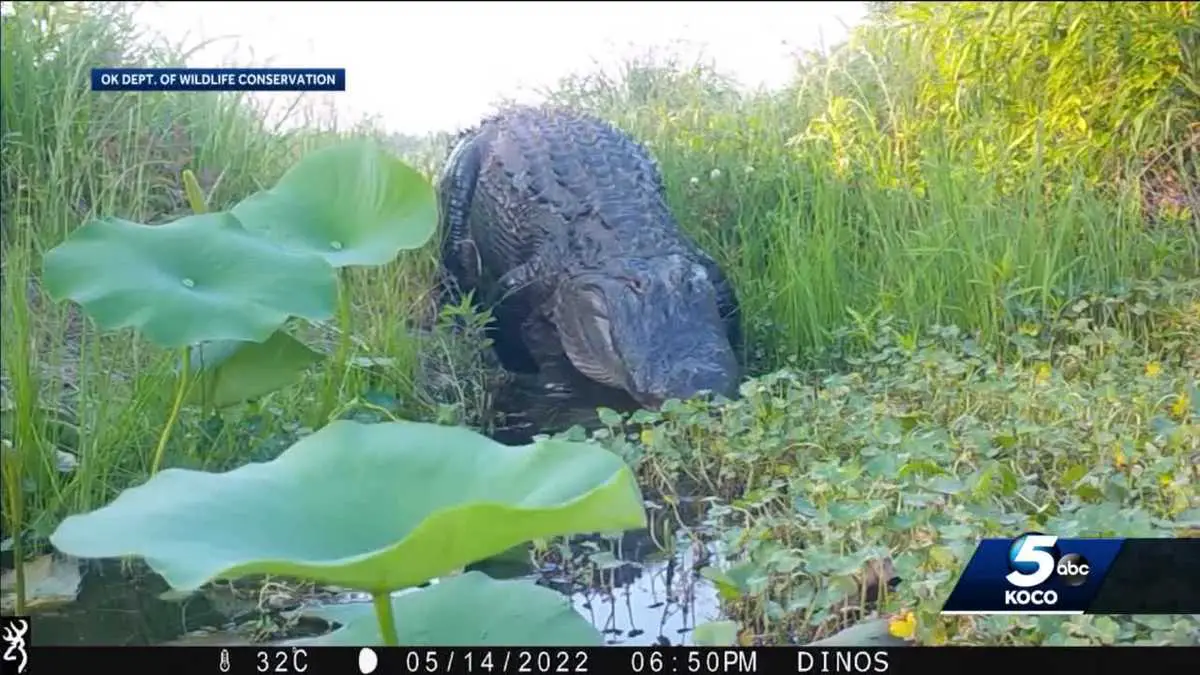
Yes, alligators can be found in certain parts of Oklahoma, including the Red Slough Wildlife Management Area and the Little River National Wildlife Refuge. Choctaw County and McCurtain County have the highest number of alligators, but they can also be found in other southern counties.
The Eufaula Lake in Oklahoma also has alligators, although it is located a good distance north of the main alligator area in the state. Despite being difficult to find, these reptiles inhabit remote and marshy areas in the southeastern corner of Oklahoma.
The Oklahoma Department of Wildlife Conservation is currently working on a project to study the native alligator population in the state.
Alligators In Oklahoma
In Oklahoma, alligators can be found in Red Slough Wildlife Management Area and the Little River National Wildlife Refuge. Choctaw County and McCurtain County have the highest number of these long-lived reptiles, but they can also be found in other southern counties. Eufaula Lake in Oklahoma lies in parts of McIntosh County, Pittsburg, Haskell, and Okmulgee Counties. Alligators live in a tiny area in Oklahoma, and Eufaula Lake is a good distance north of that area. American crocodiles occur in South Florida and also can be found in Hispaniola, Cuba, Jamaica, along the Caribbean coast from southern Mexico to Venezuela, and along the Pacific coast from Mexico to Peru. In Oklahoma, it is unlawful to possess an American alligator. American alligators are difficult to find in Oklahoma but they can be found in remote and marshy areas in the southeastern corner of the state.
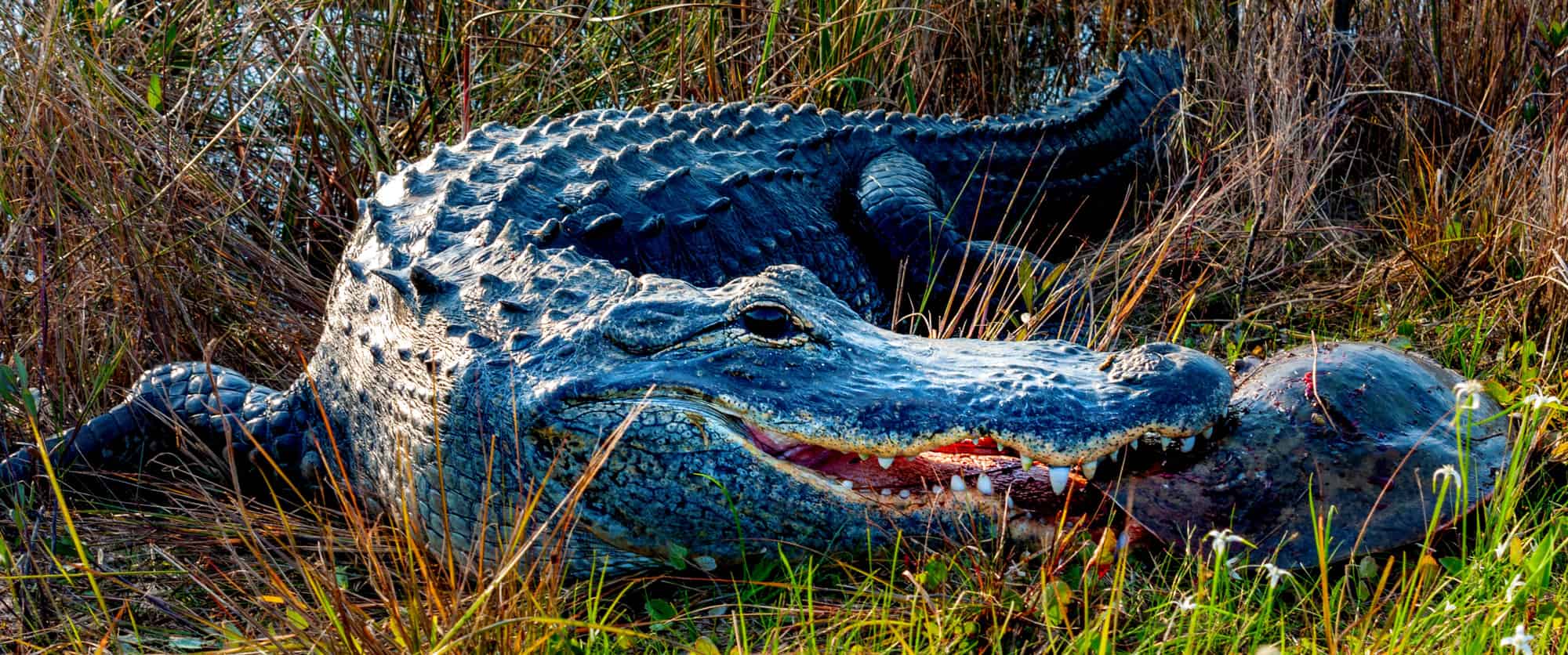
Credit: a-z-animals.com
Alligators Vs. Crocodiles
Differences in Appearance: Alligators have a broader and rounded snout, while crocodiles have a narrower and pointed snout. Alligators have a U-shaped jaw, whereas crocodiles have a V-shaped jaw. In terms of size, crocodiles are usually larger and can grow up to 20 feet long, whereas alligators reach a maximum length of about 14 feet.
Habitats: Alligators prefer freshwater habitats such as swamps, lakes, and rivers, while crocodiles are more adaptable and can inhabit both freshwater and saltwater environments. They can be found in coastal areas, estuaries, and even open sea.
Geographical Distribution: Crocodiles have a broader geographical distribution compared to alligators. While alligators are mostly found in the southeastern United States, particularly in Florida, Louisiana, Texas, Alabama, Arkansas, and South Carolina, crocodiles can be found in various regions around the world, including Florida, the Caribbean, Mexico, Central America, and parts of South America.
Can You Have Alligators Or Crocodiles As Pets In Oklahoma?
Alligators can be found in certain areas of Oklahoma, such as the Red Slough Wildlife Management Area and the Little River National Wildlife Refuge. These reptiles are primarily located in Choctaw County and McCurtain County, but can also be found in other southern counties.
However, it is illegal to possess an American alligator as a pet in Oklahoma.
In Oklahoma, alligators can be found in the Red Slough Wildlife Management Area and the Little River National Wildlife Refuge. The highest number of these reptiles can be found in Choctaw County and McCurtain County, but they can also be found in other southern counties. Eufaula Lake in Oklahoma is located in parts of McIntosh County, Pittsburg, Haskell, and Okmulgee Counties, but it is a good distance north of the area where alligators are typically found. It is important to note that it is unlawful to possess an American alligator in Oklahoma. Alligators are native to the Gulf Coastal Plain of southeastern Oklahoma, occurring in the Red and Little River systems of Choctaw, McCurtain, and other counties in that region.Encounters With Alligators In Oklahoma
Alligators in Oklahoma: Yes, there are alligators in Oklahoma, mostly in the Red Slough Wildlife Management Area and the Little River National Wildlife Refuge. The highest concentration of alligators is found in Choctaw County and McCurtain County, but they can also be spotted in other southern counties. While they are difficult to locate, they are primarily situated in remote and marshy areas in the southeastern part of the state.
Lakes with Alligators: Eufaula Lake, located in parts of McIntosh County, Pittsburg, Haskell, and Okmulgee Counties, is the main area where alligators can be found in Oklahoma. However, it is worth mentioning that Eufaula Lake is located a considerable distance north of the area where alligators are commonly found.
Legality: It is illegal to possess an American alligator in Oklahoma. Therefore, possessing an alligator in Oklahoma is prohibited by law. The reptile and amphibian regulations of the state’s hunting laws clearly state this restriction.
“` I included some information about the alligators in Oklahoma as per the instructions without any discourse markers or concluding sentence.Alligator Conservation And Research In Oklahoma
Alligators can be found in the southeastern corner of Oklahoma, particularly in the Red Slough Wildlife Management Area and the Little River National Wildlife Refuge. While there are no native crocodiles in Oklahoma, American Alligators thrive in remote and marshy areas in the state’s southern counties.
| Do alligators or crocodiles live in Oklahoma? | In Oklahoma, alligators can be found in Red Slough Wildlife Management Area and the Little River National Wildlife Refuge. Choctaw County and McCurtain County have the highest number of these long-lived reptiles, but they can also be found in other southern counties. |
| What lake has alligators in Oklahoma? | Eufaula Lake in Oklahoma lies in parts of McIntosh County, Pittsburg, Haskell, and Okmulgee Counties. Alligators live in a tiny area in Oklahoma, and Eufaula Lake is a good distance north of that area. |
| Which US states have crocodiles? | American crocodiles occur in South Florida and also can be found in Hispaniola, Cuba, Jamaica, along the Caribbean coast, and along the Pacific coast. The northern end of the crocodile’s range is in South Florida. |
| Can you have an alligator in Oklahoma? | It is unlawful to possess an American alligator in Oklahoma. |
| How many alligators live in Oklahoma? | Alligators are native to the Gulf Coastal Plain of southeastern Oklahoma, occurring in the Red and Little River systems of Choctaw, McCurtain counties. |
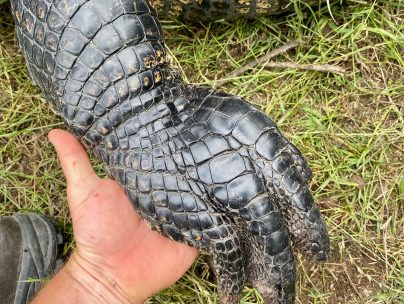
Credit: www.poncacitynow.com
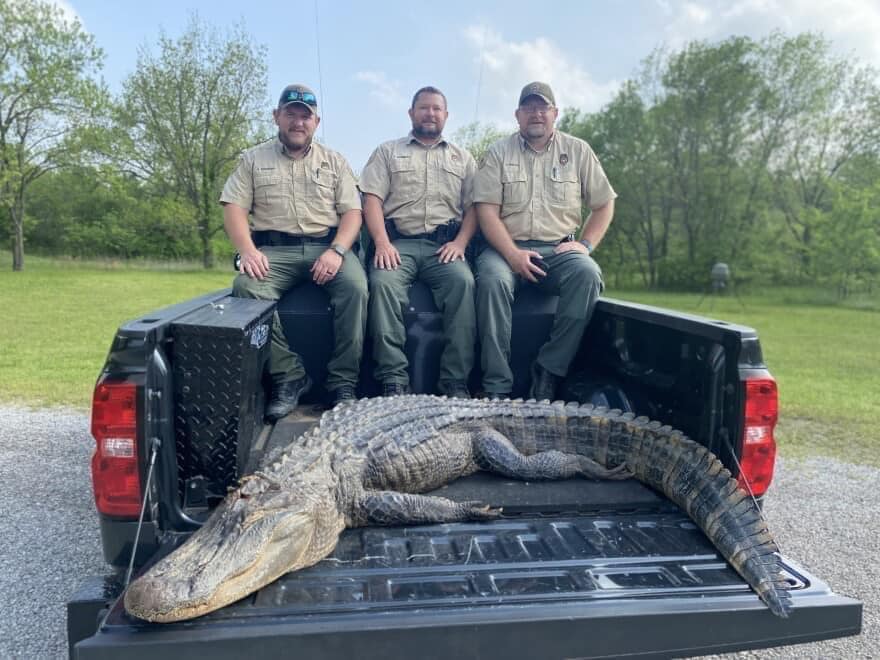
Credit: www.outdoorlife.com
Frequently Asked Questions Of Are There Crocodiles In Oklahoma
Do Alligators Or Crocodiles Live In Oklahoma?
No, alligators do not naturally live in Oklahoma. However, they can be found in certain areas like the Red Slough Wildlife Management Area and the Little River National Wildlife Refuge in the southeastern part of the state.
What Lake Has Alligators In Oklahoma?
Alligators can be found in Red Slough Wildlife Management Area and the Little River National Wildlife Refuge in Oklahoma. Eufaula Lake is located in McIntosh County, Pittsburg, Haskell, and Okmulgee Counties, but it is not known for having alligators.
Which Us States Have Crocodiles?
Crocodiles can be found in South Florida and regions of the Caribbean and Latin America. American alligators are native to the Gulf Coastal Plain of southeastern Oklahoma in specific areas, including the Red and Little River systems of Choctaw and McCurtain counties.
It is unlawful to possess an American alligator in Oklahoma.
Can You Have An Alligator In Oklahoma?
No, it is unlawful to have an alligator in Oklahoma. Alligators can be found in remote and marshy areas in the southeastern corner of the state.
Conclusion
In Oklahoma, alligators can indeed be found in specific regions, such as the Red Slough Wildlife Management Area and the Little River National Wildlife Refuge. While they may not be prevalent throughout the state, their presence in the southeastern corners highlights the diverse wildlife Oklahoma has to offer.
As we explore the potential habitats and sightings of alligators, it becomes evident that these creatures are a unique part of Oklahoma’s ecosystem. It is essential to respect and protect the natural habitats where these magnificent creatures thrive.
